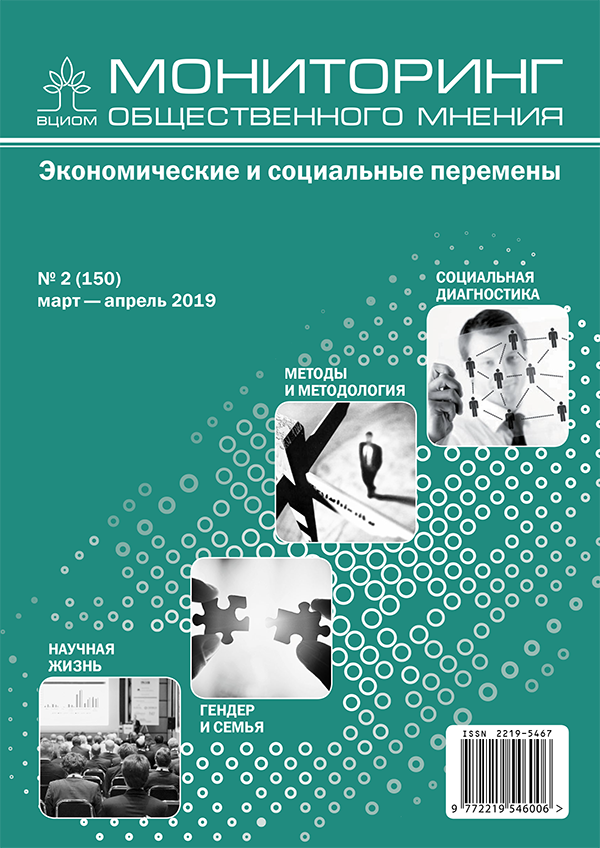Социально-экологическая "устойчивость через изменения" российских городов: поиск теоретико-методологических перспектив
DOI:
https://doi.org/10.14515/monitoring.2019.2.04Ключевые слова:
«зеленый» город, устойчивость-через-изменения, российские города, индикаторы, здоровье населения, утилизация отходов, цифровизация, теория СБТ-систем, концепция устойчивых переходов, концепция социально-экологического метаболизмаАннотация
Статья направлена на критическое осмысление концептуальных основ исследования социально-экологической устойчивости и изменчивости городов на примере концепта «зеленый город», анализа исторического, социального, экономического и политического контекстов формирования подобных городов для России, а также рассмотрения релевантных теоретико-методологических подходов к исследованию «устойчивости через изменения», структуры и функций российских городов на основе метаанализа более 150 рецензируемых научных трудов. Под «зеленым городом» понимается город, сочетающий высокую эффективность и инновативность; город, в котором созданы наилучшие (при имеющихся ограничениях и возможностях) условия жизни его населения, город, способный сохраняться, реагируя на глобальные изменения. Среди основных особенностей формирования «зеленых городов» в России авторы выделили их «двойную трансформацию», непосредственную связанность с современными геополитическими процессами в мире и ресурсной политикой государства, стремительную информатизацию и цифровизацию, обострение старых и появление новых экологических рисков (в первую очередь, проблему утилизации отходов в крупных городах), влияющих на здоровье и качество жизни населения в городах. Анализ основных авторских и корпоративных методик по измерению устойчивости и экологичности российских городов показал, что все методики расчета, за исключением методики «Зеленого патруля», основываются на количественных (статистических) данных, что, с одной стороны, является их преимуществом, делая их результаты максимально объективными, но, с другой стороны, выступает и недостатком, так как в связи с задержкой публикации статистики или вовсе ее отсутствия не позволяет наблюдать ежегодную динамику. Авторы статьи полагают, что основными теоретико-методологическими подходами к исследованию социально-экологической «устойчивости через изменения» городов в российском контексте должны стать проблемно-ориентированные и междисциплинарные подходы, включая концепцию СБТ-систем, социально-экологического метаболизма, подхода устойчивых переходов и отдельных теорий среднего уровня. В рамках данных подходов, во-первых, изменения в городских системах понимаются как комплексные, динамические, системные (происходят сразу во множестве систем) и нелинейные процессы, во-вторых, траектории изменений возникают из совместных взаимодействий между множественными системами
Благодарность. Статья написана при поддержке Российского научного фонда, проект «Российские мегаполисы в условиях новых социально-экологических вызовов: построение комплексной междисциплинарной модели и стратегий формирования «зеленых» городов России», грант № 17-78-20106.






